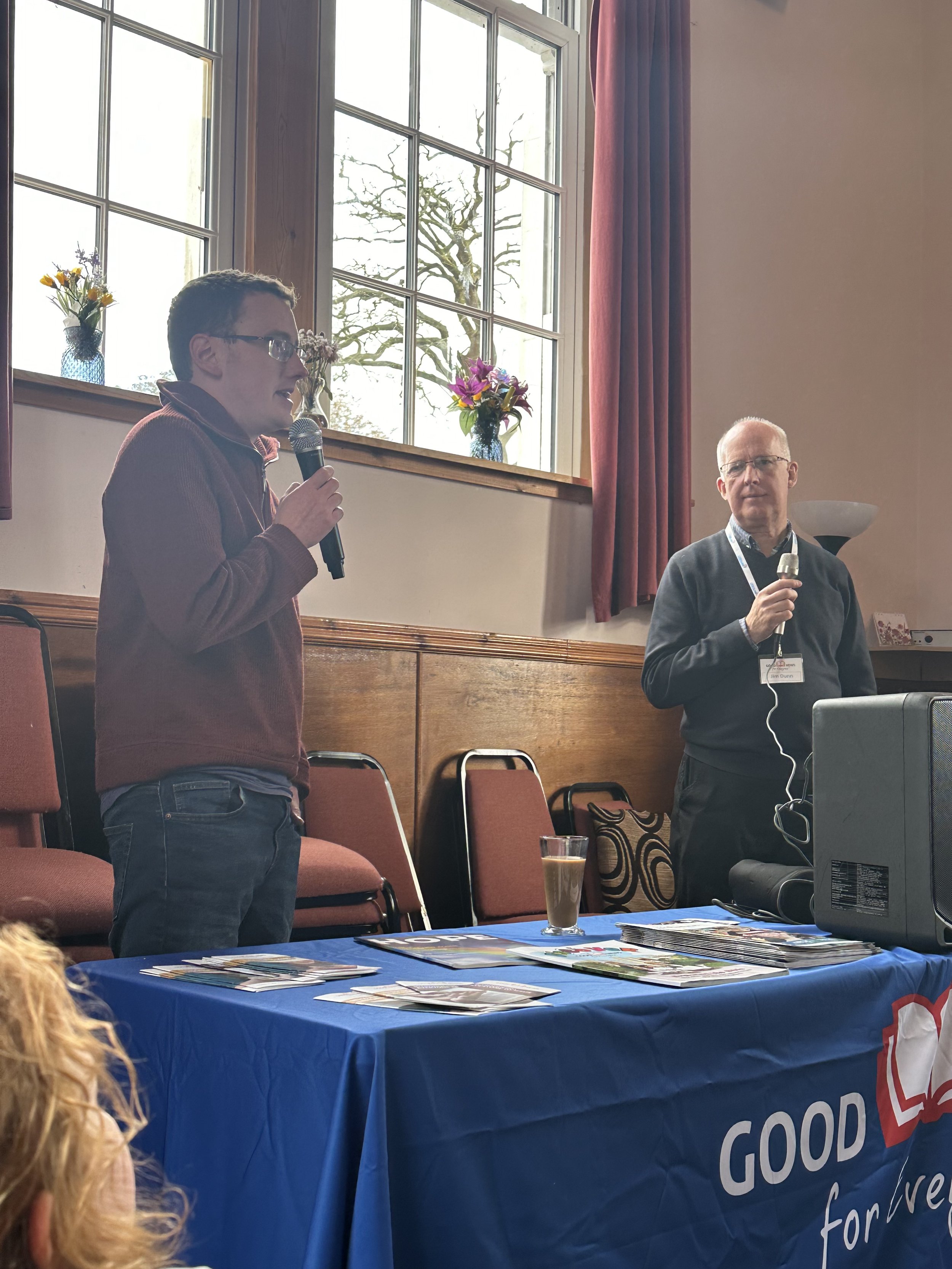Today is World Book Day. While that might be news to some, it won’t be to anyone who has children in school. Children dress up as characters from books, are given book vouchers, etc. This year, we have decided to mark the day as a church by giving out free Bibles in the town centre. After all, it’s the bestselling book in the history of the world! If you’ve never read the Bible, there’s no better time to do so. If I can’t convince you, perhaps comedian Lee Mack can. Mack was interviewed on Desert Island Discs recently. He was asked which book he would take with him—you’re allowed the Bible, the works of Shakespeare and one other. He chose Stephen Hawking’s ‘A Brief History of Time’, but it was his comments about the Bible that intrigued me.
He said, ‘I’m glad you get the Bible, because I would read the Bible. I think it’s quite odd that people like myself, in their forties, are quite happy to dismiss the Bible, but I've never read it. I always think that if an alien came down and you were the only person they met, and they said, “What’s life about? What’s earth about? Tell us everything,” and you said, “Well, there’s a book here that purports to tell you everything. Some people believe it to be true; some people do not believe it to be true.” “Wow, what’s it like?” and you go, “I don’t know, I’ve never read it.” It would be an odd thing wouldn't it? So, at the very least, read it’.
Many are happy to accept the opinions of others about the Bible (both positive and negative) without ever reading it themselves. Others feel let down by church, but are reluctant to read the Bible for themselves. Some are struggling with life and trying to get through by their own strength, unaware that the Bible has help to give. Even many churches have in practice abandoned the Bible – and it’s no surprise they’re declining and closing.
Perhaps you’ve tried reading the Bible before, but haven’t really known where to start. It’s easy to get bogged down. One of my recommendations is to begin reading The Gospel According to Mark – the second book of the New Testament. It’s the shortest of the four gospels and gets straight to the action – the life and death of Jesus Christ. We actually have 80 copies of Mark’s gospel to give away today, if picking up a whole Bible seems intimidating. We also have a leaflet entitled ‘What the Bible is all about’, which we’ll put inside everything we give out.
I’m also happy to meet up with anyone, either one-to-one or as part of a group, to read through a book of the Bible and discuss what it’s about. In fact, there’s a story in the book of Acts (which we’re currently going through in church on Sunday mornings – you can catch up on YouTube), where an evangelist called Philip meets a man travelling back home to Ethiopia. The Ethiopian is reading the Bible in his carriage. Philip asks him: ‘Do you understand what you are reading?’ The Ethiopian replies: ‘How can I, unless someone guides me?’ He then invites Philip to come and sit with him, and the rest is history. There’s no shame in asking for help.
When the Bible was translated into the language of the common people, it scandalised many of the church leaders, but transformed this nation. The man who first translated the Bible into English, William Tyndale, was burnt at the stake. It is still a banned book in many countries. Why not read it and find out why its contents are so explosive?
What many people – even churchgoers – can miss about the Bible is that it’s all about Jesus. That’s what Philip showed the Ethiopian, who was struggling as he read a 700-year-old prophecy from the book of Isaiah. ‘Is he speaking about himself or someone else?’, the Ethiopian asked. Philip gladly took the opportunity and ‘beginning with this Scripture he told him the good news about Jesus’ (Acts 8:35). ‘The Scriptures’, Jesus said, ‘bear witness about me’ (John 5:39). The Bible is all about who Jesus is, why he needed to come, and how he can transform our lives.
There are many good – even life-changing – books you could read on this World Book Day. But why not read the all-time bestseller?
Published in the Stranraer & Wigtownshire Free Press, 6th March 2025







